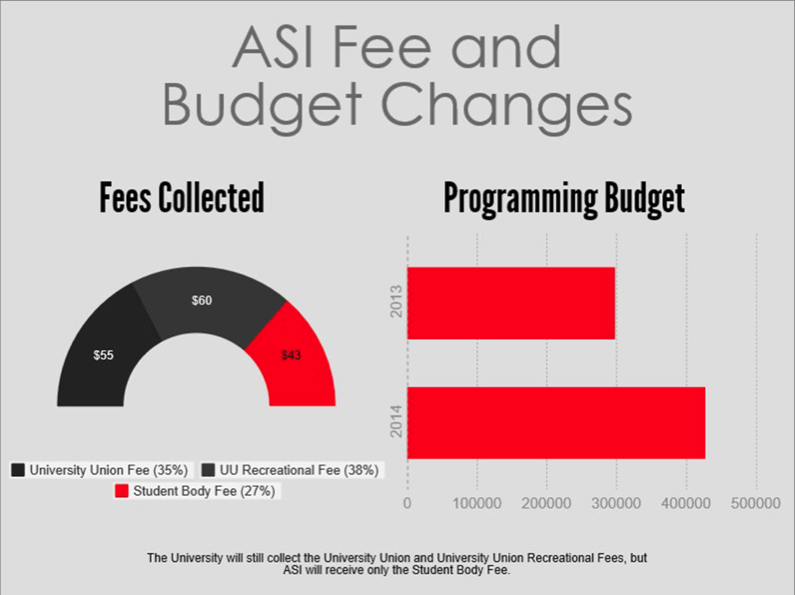ASI relinquishes control of RAW and New Union
A $43 student body fee will lead to a projected ASI budget of $1.7 million in the fall.
Associated Students, Inc. permanently turned over the operation of the University Union and Recreation and Wellness Center facilities back to the university this summer in order to sustain other operations.
“We’re still doing the programming pieces that we used to do,” said Randy Saffold, executive director of ASI, “but anything associated with operating facilities went back to the state.”
ASI would have been short $665,000 for the upcoming year, which would have hindered its operations. Since students are paying upfront for the cost of instruction through self-support this summer and no student body fees are being collected, Saffold said.
Self-support did not affect ASI’s summer operations since it primarily operates during the academic year and the RAW is collecting fees on an as-used basis. ASI cut its summer funding two years ago to increase the budget for the rest of the academic year.
“That’s the lion share of time when students are here,” Saffold said, “so we’ve increased the amount of funding that clubs are accessible to.”
The state gave the university more funding last year, but the additional funds were not enough to cover the increase in enrollment. Utilizing self-support during the summer also allows the university to shift state funding toward offering more courses during the other three quarters when enrollment is highest.
ASI President, Thamer Alhathal, said the resulting debt would have forced ASI to give up two-thirds of its staff and made it “impossible to continue running all operations for the facilities and provide quality programming for the students.”
The university began working with the board to create what Saffold calls a “win-win where ASI doesn’t have to absorb all of the shortfall.”
ASI will no longer collect the $55 University Union and $60 University Union Recreational fees from each student. It will only collect the $43 Student Body fee, according to Alhathal, which should lead to a projected $1.7 million budget depending on enrollment.
By reforming the budget and its focus, Saffold said ASI was able to “bring back some of the programming dollars that were removed from the budget in previous years.”
ASI’s operating budget was $3.8 million with the operation of the two facilities, but will now be $1.8 million and focus primarily on advocacy and educational entertainment, in addition to supporting clubs and organizations on campus.
Saffold said that as things are changing, the focus will be to determine what is important to the students.
Last year, ASI helped get advising changed for international students and partnered with Academic Advising and Career Education to host industry job panels with alumni, among other things. Alhathal said the board plans to not only do more advocacy and edutainment, but also try to get students involved in ASI and sporting events on campus.
“If we kept it the way we had last year, we wouldn’t have had the freedom to do stuff like that,” Alhathal said.
All of the ASI board members will return Sept. 1 to begin their duties and continue planning for the upcoming year.












